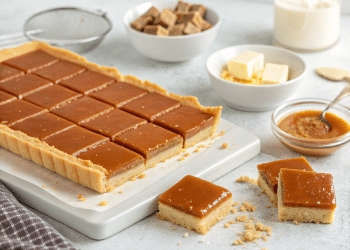If you’re on Mounjaro (tirzepatide) for weight loss, combining it with the right diet can make a world of difference. But here’s the twist why not turn to Japan for inspiration? The Japanese are known for their slim physiques, long lifespans, and incredibly flavorful yet healthy cuisine. This article dives into a Japanese-inspired recipe designed specifically to pair beautifully with Mounjaro, helping you maximize your weight loss journey.
Understanding Mounjaro
The Role of Tirzepatide (Mounjaro) in Weight Loss
Mounjaro works by mimicking hormones (GLP-1 and GIP) that regulate appetite, insulin, and blood sugar levels. Simply put, it helps you feel fuller, longer—making overeating a lot harder.
How Diet Enhances Mounjaro’s Effectiveness
Even though Mounjaro reduces hunger, pairing it with nutrient-dense, low-calorie foods boosts its power. Japanese food checks all the boxes: it’s light, rich in nutrients, and naturally portion-controlled.
The Importance of Culturally Aligned Diet Plans
Following a diet that feels fresh and exciting—like Japanese cuisine—can increase your commitment and prevent boredom from derailing your weight loss goals.
Why Japanese Recipes Work for Weight Loss
Low-Calorie, Nutrient-Dense Ingredients
Japanese meals are filled with vegetables, lean proteins, and broth-based soups. They deliver maximum nutrition with minimal calories.
Fermented Foods for Gut Health
Miso, natto, and pickled veggies aren’t just tasty—they feed your gut with good bacteria that aid digestion and metabolism.
Portion Control Culture in Japan
The Japanese cultural mindset is “Hara Hachi Bu”—eat until you’re 80% full. That kind of mindfulness is a game-changer with Mounjaro.
Umami and Satiety
Japanese cuisine is packed with umami, the “fifth taste” that boosts flavor and satisfaction. This means you’re more likely to stop eating sooner without feeling deprived.
Key Ingredients in a japanese mounjaro recipe
Miso
Rich in probiotics and low in calories, miso adds flavor and boosts gut health. It also helps stabilize blood sugar levels.
Tofu
Tofu is a protein-packed, low-fat option that keeps you full without tipping the calorie scale.
Seaweed
Loaded with iodine and minerals, seaweed boosts metabolism and has almost no calories.
Konjac (Shirataki Noodles)
Known as “miracle noodles,” they’re nearly calorie-free, high in fiber, and keep you full longer.
Fish and Omega-3s
Fatty fish like salmon and mackerel are heart-healthy, satisfying, and rich in omega-3 fatty acids.
The Japanese Mounjaro Weight Loss Recipe
Ingredients List
- 1 block of firm tofu (cubed)
- 1 tbsp miso paste
- 1 tsp grated ginger
- 2 cups vegetable or fish broth
- ½ cup chopped bok choy
- ½ cup sliced mushrooms
- 1 pack of shirataki noodles
- 1 tbsp soy sauce (low sodium)
- 1 tsp sesame oil
- Chopped green onions and seaweed for garnish
Step-by-Step Preparation
- Rinse the shirataki noodles under warm water and boil for 2 minutes. Drain and set aside.
- In a saucepan, heat sesame oil and lightly sauté the ginger.
- Add mushrooms and bok choy, cook until soft.
- Pour in the broth and bring to a simmer.
- Dissolve the miso paste in a bit of warm broth, then stir it into the pot.
- Add tofu cubes and shirataki noodles. Simmer for 5–7 minutes.
- Finish with soy sauce and top with chopped green onions and seaweed.
Nutritional Breakdown
- Calories: ~200
- Protein: 15g
- Fat: 7g
- Carbs: 10g (mostly fiber)
Why It Works With Mounjaro
This recipe is light, high in fiber and protein, and keeps blood sugar stable—all of which enhance Mounjaro’s effects. It’s also comforting and satisfying, helping reduce cravings.
Additional Tips for Eating the Japanese Way
Chew Slowly and Mindfully
Take your time. It takes about 20 minutes for your brain to get the “I’m full” message.
Embrace Smaller Plates
Smaller portions = smaller waistlines. Use Japanese-style bento boxes or bowls to keep things in check.
Include Soup in Every Meal
Warm, broth-based soups are filling and low in calories—a common trick in Japanese dining.
Sample Weekly Mounjaro + Japanese Meal Plan
Monday to Sunday Meals
Breakfast: Miso soup, soft-boiled egg, and a small bowl of rice
Lunch: Tofu stir-fry with veggies and shirataki noodles
Dinner: Grilled fish, steamed greens, and miso soup
Snack Alternatives
- Edamame
- Seaweed chips
- Pickled radish
- Green tea with a rice cracker
Lifestyle Tips to Complement Mounjaro and Diet
Walking Like the Japanese Do
The average Japanese person walks over 7,000 steps a day. Make walking a habit—after meals is especially effective.
Green Tea Habits
Drinking green tea not only boosts metabolism but also reduces appetite. Plus, it’s full of antioxidants.
The Power of Hot Baths
A warm soak helps relax muscles and reduce stress, which is often a silent cause of weight gain.
Conclusion
Combining Mounjaro with the healthy simplicity of Japanese cuisine can accelerate your weight loss journey in a sustainable and delicious way. The recipe shared here is just the beginning—embrace the Japanese mindset around food and movement, and you’ll not only lose weight but feel more energized and satisfied in your everyday life.
FAQs
1. What is the best time to eat when on Mounjaro?
It’s best to eat smaller, frequent meals and avoid eating late at night. Stick to regular times to support digestion and blood sugar control.
2. Can I eat sushi while on Mounjaro?
Yes, but opt for sushi with brown rice or sashimi to cut down on carbs and calories. Skip fried rolls and mayo-based sauces.
3. Is soy-based food good for weight loss?
Absolutely. Soy is a lean protein and isoflavones in soy can support metabolism and satiety.
4. How often should I eat seaweed?
2–3 times per week is ideal for the iodine boost without overdoing it.
5. What makes Japanese recipes more effective with Mounjaro?
They’re naturally low in calories, high in fiber, and full of umami—making it easier to feel full with less food, which aligns perfectly with how Mounjaro works.
You’ll Also Like :
Strawberry Mango Smoothie: A Tropical Burst of Flavor and Health
Best Pavlova Toppings for 2025














